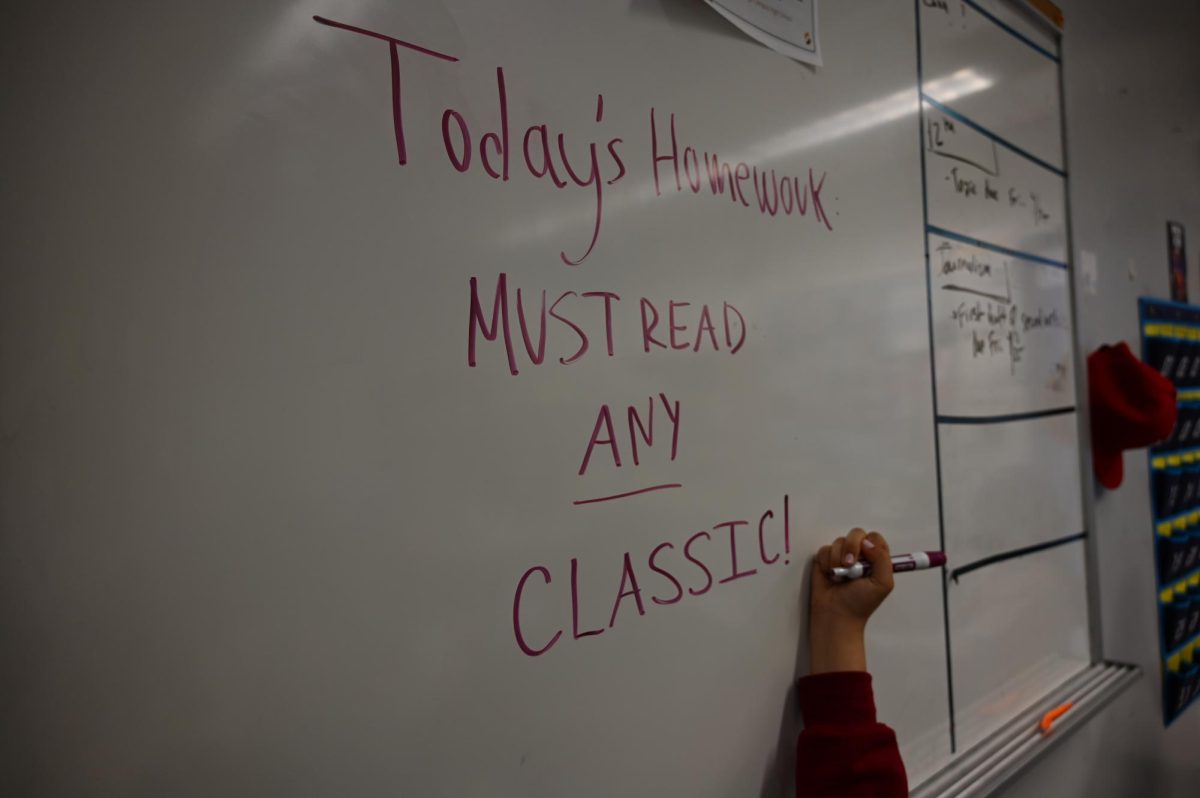Homework – Valuable or Done in Vain?
January 19, 2023
“John Downes-Angus, New Assignment:..” is a Google Classroom notification that has become familiar to AP Lang students. With Classroom To-Do lists being piled high with new assignments, highschoolers are expected to complete time consuming work before the clock hits midnight – despite already spending a 7 hour day at school.
Homework is said to be a helpful aspect of the learning process, but at the end of the day, is it really? Baruchian teachers and students have unique opinions on the assets and liabilities of homework – can these varying opinions find some common ground?
11th grader Jamie Guan believes that homework is a necessary tool that helps students remember all that they have learned in class; however–she says, “ at the same time I think sometimes I could go home and know the material without doing homework. A lot of students could thrive without the need of homework”.
She claims that the time spent on her homework could be anywhere from an hour to three; however, on a “bad day” it could reach up to five. Guan admits that over the course of the current school semester, at least half of each month she is stressed because of the amount of work assigned.
Mr. DA, Baruch’s AP Language teacher, reveals his rationale for the homework he assigns: article of the week. He says that he wants students to do their own independent exploration of the topics they’ve already started in class. In addition, he believes that responding to an article cannot always be completed during class time, hence why he strongly advocates working at home to keep up with the curriculum. However, he says that daily assignments are only helpful if they’re meaningfully connected to the work students have already done in class.
DA regularly assigns weekly homework – the amount of time it takes for students to complete them, however, “is going to depend on whether or not they’re breaking up their homework across the week”.
Despite being a teacher, DA was once a student too – he confesses that he never really liked homework as a kid because he didn’t like people telling him what to do. However, college altered his perspective on the subject. DA states that during his college years, he began to equate the self-directed “classwork” he was completing with the homework he had always disliked. This shift in his mindset is part of what makes him convinced of the merits homework can provide – in essence, he wants his students to be prepared for the years when homework becomes their entire lives.
“I assign homework because I think it’s a way to practice what you learn in class so that you don’t forget,” says Ms. Garcia–Baruch’s Spanish teacher. She reasons that students should continue to work on the activities covered in class at home, that way the next class they have will be that much easier for them, and they can have a better understanding of the material.
Garcia says she doesn’t assign homework everyday, but when she does, it should take no more than 30 minutes for students to complete. Like Mr. DA, she also believes that the time it takes for students to finish ultimately depends on them – “but of course it depends on the student, so it might take longer or take less.”
When Ms. Garcia was a student, to her, homework wasn’t a “yayyy” kind of thing. It wasn’t until she began her career as an educator that she was finally able to realize that her own teachers weren’t trying to assign her more work – they just wanted her to be able to practice what she had learned so that she would be prepared for her next class.
Ms. Killic, the school’s 11th grade chemistry teacher, believes that daily homework isn’t really useful, hence why she doesn’t typically assign it. When she does, she keeps in mind whether or not students need to practice the material more. The length of her assignments take no more than 30 minutes to complete.
Killic revealed that when she was a student, she had a strong dislike for homework. With so much to complete, she resented how time-consuming and relentless it was. This experience helps her sympathize with her students and take into account the stress they may already be dealing with in other classes.
Earlier in her career, she confessed that she felt pressured from her colleagues to assign more work to her students. ”They were always assigning homework and I’m like ‘oh I’m not assigning, I should assign more.’” Regardless of the pressure she faced, she prioritized the feedback she got from her students and her own past experiences being in their shoes, which helped change her perspective on the workload students receive.













